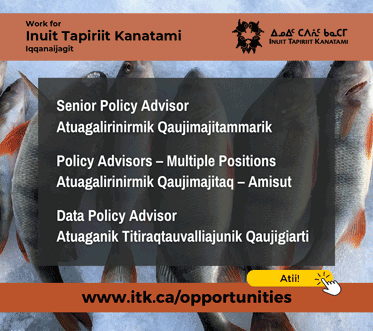Animal rights lobby invited on seal hunt
Greenland Inuit have extended animal rights activists a standing invitation to go seal hunting.
Alfred Jakobsen, Greenland’s executive member for the Inuit Circumpolar Conference (ICC), invited the International Fund for Animal Welfare (IFAW) to witness a seal hunt first hand during ICC’s general assembly next year.
“This would give you an outstanding experience of the state of the Arctic today,” Jakobsen told the IFAW at a recent symposium in Brussels, Belgium. “And it would be nice to bring home a seal as a symbol of our common interests.”
The invitation comes just weeks before European environmental ministers vote on an international deal that could salvage or destroy the aboriginal fur industry.
The International Agreement on Humane Trapping Standards is to be voted on later this month.
A ban on imports of pelts to European Community’s member countries is sure to follow if the agreement isn’t adopted by the European Community.
The ICC held this symposium on wildlife management and indigenous peoples to start a dialogue between animal rights organizations and Inuit.
Because the vote is far from certain, the Inuit Tapirisat of Canada (ITC) also organized a strategy session in Montreal this week.
“The European Council of Ministers can block or reject the agreement with 26 votes,” says Peter Williamson, ITC’s Special Projects and Research Coordinator. “The way things stand now there will be 28 votes against it.”
Two years ago, the animal rights lobby was sure that this agreement would be rejected. But it looks like Sweden, home to the Sami, Europe’s only indigenous people, could change its position and swing the vote in favor of the agreement.
The animal rights advocates still have clout, and that’s why the ITC wants to come up with a strong lobbying strategy.
Jakobsen, now back in Nuuk, says that IFAW should be invited sealing “so they can physically, personally breathe what we breathe, see the sea we hunt on and the animals we eat, and be part of everyday life and the needs we have”.
Formed in 1969, IFAW almost singlehandedly squashed the world seal trade back in the 1970s and 1980s.
“I have always seen them as the real opponents of hunters and fishermen in Greenland,” Jakobsen says. “But I think education is the best way to teach them how we perceive the world.”
ITC may opt for a less conciliatory strategy.
“Some of these IFAW people are hardliners,” says President Mary Sillett.




(0) Comments